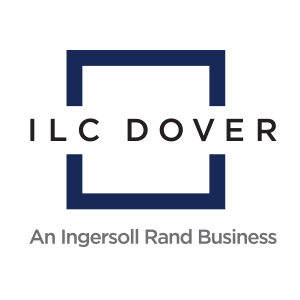When we hear the word packaging, our minds immediately connect to the products we buy as a consumer. We think about the box of cereal we ate for breakfast, the bottle of shampoo we used this morning, or the bag of dog food we have sitting in the pantry. The packaging we use every day as a consumer is known as primary packaging.
There is a whole other world of packaging that happens behind the scenes, long before the shampoo bottle we purchase hits the shelf. It is called bulk packaging and it enables the manufacturing industry to efficiently produce all of the products that are packaged in primary packaging that we enjoy as consumers. Read on to explore the many facets of bulk packaging, from its definition and usages to common industries, challenges, and bulk packaging solutions.
What Is Bulk Packaging?
Bulk packaging enables the safe and efficient production of all the goods we enjoy as consumers. It is large scale packaging that is used to store or transport raw ingredients or finished goods in the manufacturing process. Bulk packaging can hold anywhere from five gallons of material to 1000 liters. Bulk packaging often involves the use of an intermediate bulk container (IBC).
What Is an Intermediate Bulk Container?
An intermediate bulk container (IBC) is a reusable container used for storing and transporting bulk liquids and powders. Also known as a tote, an IBC is capable of stacking and can be moved by a pallet jack or forklift. The term ‘intermediate’ comes from the volume that IBCs carry, which sits in between that of bulk tanks and drums. Intermediate bulk containers are classified by the materials they are made from and are either referred to as a Flexible IBC (FIBC) or Rigid IBC (RIBC).
Flexible IBCs are made from woven material and are custom designed with fill and dispense spouts that meet the manufacturing footprint of processors for easy filling and dispensing. Rigid IBCs are made from heavy plastic, metal, or cardboard and have either a tap, valve, or dispense port at the base where a hose can be attached for easy transfer of contents into smaller containers or into the hopper of the packaging line for primary packaging.
IBCs are frequently used with single-use bulk liners, which are specifically designed to match the interior dimensions of the IBC and provide product protection and ease of cleaning for reuse.
The Usage of Bulk Packaging
Bulk packaging is used throughout various product manufacturing supply chains. There are four main uses of bulk packaging in manufacturing.
- Bulk Product Production
- Bulk Product Transport
- Bulk Product Storage
- Bulk Processing/End Product Processing
Many product manufacturers make bulk products in their plants that are later sent to another manufacturer in the value chain. Examples of this include chemical processors that make specialty chemicals for healthcare or cosmetic products, and food ingredient manufacturers, like liquid egg and cream producers, that ship to other food manufacturers who make products like baked goods.
Bulk packaging allows these companies to safely package their bulk products in their own plant, economically transport the product to their customers, and store the bulk product.
End-use processors, such as food manufacturers and personal care producers, receive bulk products from their suppliers in intermediate bulk packaging. Bulk packaging allows them to safely store these bulk products in their warehouse until they are ready for processing. They may also use intermediate bulk packaging in-house to hold product batches they create for dispensing into their primary packaging lines. Once the product is filled into primary packaging, it can be shipped to retail and consumers.
Industries Using Bulk Packaging
Many industries require the use of bulk packaging solutions and each come with a unique set of applications, requirements, and challenges. When it comes to determining the right bulk packaging solution, you must first identify the specific application and the manufacturing conditions. Is the product a liquid, dry flowable product, or a manufactured WIP product? Once you know what is being packaged, you can explore bulk packaging options that meet your application’s storage and processing needs and accommodate your product’s specific requirements.
Let us take the Personal Care industry for example, which manufactures creams, lotions, shampoo, liquid soap, and cosmetics. Manufacturers receive cosmetic powders and other dry active ingredients in bulk packaging. Bulk packaging helps protect the efficacy of these products and allows manufacturers to store and dispense them safely. In addition to protecting the product, bulk packaging solutions must also be FDA compliant and compatible with existing equipment. Other needs may include easy to clean and store, and ability to improve evacuation.
Other industries that require bulk packaging solutions for liquid and dry products include:
Top Challenges of Bulk Packaging
Every industry has its challenges. In bulk packaging, some of the top challenges include wasted product residual in package filling operations which leads to lost yield, revenue, and profit; inefficiencies between uses due to cleaning validation time; difficulty operating and storing equipment safely; and protecting the product’s integrity.
Companies, including ILC Dover, are designing and engineering solutions that combat these challenges. For example, a new liquid dispensing platform called the Xtrakt® System addresses multiple challenges. It’s a high-viscosity liquid transfer system that mitigates product loss while reducing environmental impact, improving yield and worker productivity. Learn more about Xtrakt® here.
Wrapping Up
If you are a Processor or Contract Manufacturer/Packager who has faced similar challenges with bulk packaging as outlined here, it may be time for you to reconsider your options. ILC Dover’s intermediate bulk solutions for liquid and dry applications are intended to combat storage, handling, and cleaning challenges through modern technology designed to extract more material and profit, easily. Learn more about our bulk packaging solutions and contact us.

